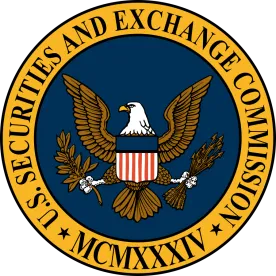Last week, the U.S. Securities and Exchange Commission (“SEC”) approved interpretative guidance1 relating to (i) the application of proxy rules to proxy advisory firms2 and (ii) the fiduciary role of investment advisers within the proxy process. 3 The guidance focuses on the need for improved transparency and structure within the proxy industry. Proxy and investment advisers are directed to review and update their policies and procedures prior to the 2020 proxy season. The SEC guidance should provide public companies increased insight into proxy adviser processes as well as new leverage in challenging perceived deficiencies in proxy adviser voting recommendations.
Key Takeaways
Advisers Should Review Policies and Procedures Now The SEC cautioned that both proxy advisory firms and investment advisers should review the efficacy of their procedures and practices prior to the 2020 proxy season. Proxy advisers should confirm that procedural safeguards exist to protect against the use of inaccurate and untimely information in formingvoting recommendations and that potential conflicts of interest are disclosed. These advisers should also make sure that their voting guidelines and recommendations follow client guidance and intent. Likewise, investment advisers should confirm that their policies and procedures protect their clients’ interests and include appropriate monitoring of proxy advisers.
Possible Proxy Adviser Regulation
The SEC also noted that the SEC’s Staff is considering amendments to the proxy solicitation exemptions relied on by proxy advisers (e.g., Exchange Act Rule 14a-2(b)) to increase transparency and information accuracy within the proxy process. The perceived need for additional regulation was echoed in comments from several Commissioners at the SEC’s Open Meeting held August 21, 2019. 4
Split SEC
SEC Commissioners are split on the issue of proxy adviser regulation. The majority believes oversight (through both guidance and regulation) protects stockholders. The minority is concerned that additional regulation would hinder new companies from entering the already small proxy advisory industry and limit proxy adviser independence. This split highlights the continued tension between protecting individual stockholders and allowing institutional stockholders to vote in an efficient and informed manner.
Highlights from Proxy Adviser Release
- Proxy advisers are subject to federal proxy rules and are generally considered to engage in “solicitations”5 when providing voting advice.
- A false and misleading statement made by a proxy adviser (or the failure to provide information necessary to make a statement not false or misleading) violates Exchange Act Rule 14a-9, which could potentially result in liability for such a violation.
- Proxy advisers should generally disclose methodology (including deviations from publicly-announced policies), third-party sources (and the extent to which such sources differ from publicly available information), and material conflicts of interests. For instance, where a proxy adviser uses a peer group that differs from an issuer’s peer group in a “say on pay” vote, the proxy adviser may need to explain the distinction.
Highlights from Investment Adviser Release
-
Investment advisers should analyze whether existing voting guidelines address the needs and concerns of individual clients and whether any new guidelines should be established.
-
Investment advisers should establish written policies and procedures to ensure that they make the ultimate voting decision (vs. a proxy adviser), as generally required by their fiduciary duty.
-
Investment advisers should review proxy adviser practices and disclosures, including proxy adviser use of issuer input, appropriate peer groups, potential conflicts of interest, transparency of methodologies, and technology.
-
Investment advisers should consider (i) sampling pre-populated votes displayed on a proxy adviser’s electronic voting platform before casting votes, (ii) establishing procedures to capture information that arises after the issuance of proxy adviser guidance, and (iii) giving increased consideration to major voting decisions.
1 See “SEC Clarifies Investment Advisers’ Proxy Voting Responsibilities and Application of Proxy Rules to Voting Advice” (Aug. 21, 2019), available at https://www.sec.gov/news/press-release/2019-158.
2 See “Commission Interpretation and Guidance Regarding the Applicability of the Proxy Rules to Proxy Voting Advice,” SEC Release No. 34-86721 (Aug. 21, 2019), available at https://www.sec.gov/rules/interp/2019/34- 86721.pdf.
3 See “Commission Guidance Regarding Proxy Voting Responsibilities of Investment Advisers,” SEC Release Nos. IA-5325 and IC-33605 (Aug. 21, 2019), available at https://www.sec.gov/rules/interp/2019/ia-5325.pdf.
4 Statements were released by each SEC Commissioner in connection with the SEC’s Opening Meeting held August 21, 2019. These statements may be accessed through the following link, https://www.sec.gov/news/statements.
5 See definition of solicitation found in 17 CFR § 240.14a1(l).



 />i
/>i
